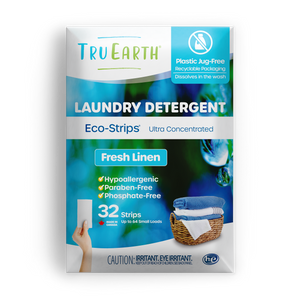A glass stovetop adds a touch of modern elegance to your kitchen but also requires special care to keep it pristine. Unlike traditional coil or gas stovetops, glass stove tops are sleek, flat, and vulnerable to scratches, stains, and burned-on residue.
This comprehensive guide will take you through the steps to ensure your glass stovetop stays spotless and gleaming. With the right techniques and a little TLC, you can enjoy cooking on a beautiful, clean surface for years.

Why Cleaning Your Glass Stovetop Matters
A clean stove top is not just about having a spotless kitchen; it's about ensuring efficient cooking and, more importantly, kitchen safety. A pristine glass surface contributes significantly to the efficiency of your cooking.
When your stove top is free from stains, spills, and grime, it ensures better heat transfer between your cookware and the glass surface. This means your food cooks more evenly, eliminating the frustration of hotspots that can lead to unevenly cooked meals.
Tools and Materials You'll Need
To guarantee the efficient and thorough cleaning of your glass stovetop, it's important to have a selection of essential tools and materials at your disposal.
Equipping yourself with the right items will ensure you can tackle any cleaning task effectively, leaving your stove top gleaming and scratched-free.
Soft Microfiber Cloth
The cornerstone of any glass stovetop cleaning kit is a soft microfiber cloth that is gentle on the surface and highly effective at picking up dirt and residue. Its lint-free design ensures a streak-free finish.
Razor Blade or Scraper Tool
A razor blade or specialized scraper tool is indispensable for dealing with stubborn, burned-on residue. These tools allow you to gently remove residue without damaging the glass surface.
Glass Stovetop Cleaner
A dedicated glass stovetop cleaner is formulated to effectively break down grease, grime, and stains, leaving your stove top sparkling. Look for a cleaner designed specifically for glass surfaces to ensure optimal results.
White Vinegar
White vinegar is a versatile and natural cleaning agent. When diluted with water, it becomes an effective solution for tackling stains and grease on your glass stovetop.
Baking Soda
Baking soda is another natural cleaning powerhouse. When mixed with water or vinegar, it creates a gentle yet effective abrasive paste for removing tough stains.
Dish Soap
Dish soap is a cleaning staple that can help cut through grease and oil on your stovetop. With these essential tools and materials, you'll be well-prepared to address various cleaning challenges and maintain your glass stovetop in impeccable condition.
Deep Cleaning Your Glass Stovetop
Your glass stovetop should be cleaned periodically to tackle stubborn stains and burnt-on residue. Before you begin, ensure the stovetop has cooled completely to avoid damage.
Use a specialized glass stovetop cleaner or baking soda and water mixture to scrub tough stains. A scraper tool may also be employed to remove burnt-on residue with care.
Natural Cleaning Solutions
For those who prefer natural cleaning solutions, there are effective options for glass stovetop maintenance. One such solution is white vinegar, which can be mixed with water to create a powerful cleaning agent.
Another natural option is lemon juice, thanks to its natural acidity, which helps in removing stains effectively. These eco-friendly alternatives are safe and effective for glass stovetop cleaning.
Special Considerations
Pay attention to the special considerations when cleaning your glass stovetop. These include cleaning the control knobs and ensuring the care of your glass cookware.
Cleaning control knobs prevent grime buildup and maintain a uniform appearance. Additionally, being cautious with glass cookware is vital to prevent scratches and damage to your stovetop's surface.
Preventing Future Damage
Preventing future damage to your glass stovetop involves using safe cookware for glass surfaces. Ensure that your pots and pans have flat bottoms and are free from rough edges that could scratch the glass.
Additionally, consider using stovetop protectors to prolong the life of your glass surface and prevent future damage.
Regular Maintenance Tips
To ensure your glass stovetop remains in top condition, it's essential to establish a consistent cleaning schedule. Regular maintenance entails more than just occasional cleaning; it involves adopting key practices to keep your stovetop at its best.
Prompt Spill Cleanup
When spills occur, the key is to act swiftly. Wipe away any spills immediately after they happen to prevent them from becoming stubborn stains.
Gentle Cleaning Tools
Avoid abrasive scrubbers or harsh cleaning pads that can scratch the glass surface. Opt for gentle cleaning tools and non-abrasive cleaning agents to protect your stovetop's finish.
Microfiber Cloths
A microfiber cloth is one of the most valuable tools in your cleaning arsenal. These soft, lint-free cloths are perfect for maintaining a streak-free, clean surface. They effectively pick up dust and residue without leaving unsightly streaks behind.
By integrating these simple yet effective tips into your regular cleaning routine, you can ensure that your glass stovetop looks its best and cooks efficiently, making your daily culinary adventures a breeze.

A Gleaming Glass Stovetop Awaits
In conclusion, a clean glass stovetop enhances your kitchen's beauty and ensures efficient cooking and a safe environment. By following the tips and techniques outlined in this comprehensive guide, you can enjoy a sparkling stovetop that's both a pleasure to cook on and a source of pride in your home.
Ensure stains and grime are manageable; make regular cleaning and maintenance a part of your kitchen routine, and your glass stovetop will shine for years.


